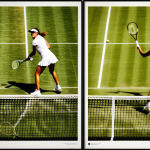Overview of Recovery Strategies
Understanding the variety of recovery strategies is crucial for elite athletes. These strategies not only aid in the rejuvenation process but are essential for sustaining peak performance. Key to an athlete’s success is integrating structured recovery techniques post-competition to achieve optimal performance enhancement.
Importance of Recovery for Elite Athletes
Elite athletes understand the pivotal role recovery plays in their training regimens. By allowing the body adequate time to recuperate, athletes can prevent injuries, reduce fatigue, and enhance overall performance. The absence of proper recovery can lead to burnout or prolonged downtimes due to injuries.
Additional reading : Revving Up Speed: How High-Altitude Training Boosts Elite Road Cyclists’ Performance
Overview of Different Recovery Strategies
There are numerous athlete recovery techniques designed to address various post-competition needs. These include physical therapies like massage, cryotherapy, and stretching, which help alleviate muscle soreness and enhance flexibility. Coupled with mental recovery techniques like mindfulness and meditation, these methods ensure a holistic approach to recovery.
Connection Between Recovery and Performance Enhancement
Post-competition recovery is directly linked to improved athletic performance. Efficient recovery strategies not only restore physical strength but also enhance mental clarity and focus. This, in turn, supports athletes in maintaining high intensity during competitions, ultimately leading to superior results.
In the same genre : Vintage tennis posters: celebrate legends and grand slam tournaments
Nutrition Tips for Optimal Recovery
Nutrition plays a pivotal role in athlete recovery, impacting both physical and mental rejuvenation post-competition. Understanding the essentials of post-competition nutrition ensures athletes can efficiently rebound and perform at their best.
Macronutrients and their Role
Proper consumption of proteins, carbohydrates, and fats is instrumental. Proteins are fundamental for muscle repair, aiding in the recovery of damaged tissues. Carbohydrates replenish spent energy, restoring glycogen stores, while fats provide sustained energy and aid in inflammation reduction.
Hydration Strategies
Adequate hydration is equally crucial. Fluid intake post-competition ensures efficient recovery. Maintaining electrolyte balance supports neuromuscular function, essential for recovery foods to be optimally effective. For maximum benefits, hydration should be timely, aligning fluid replenishment with physical demands.
Supplements and Recovery Aids
Athletes often seek recovery supplements for added benefit. Popular choices include branched-chain amino acids and creatine, each backed by scientific research. Timing and dosage are key; consuming these immediately after competition optimizes absorption. Tailoring intake to individual needs can enhance recovery outcomes significantly.
Physical Therapies for Recovery
In the realm of athlete recovery, physical therapy stands as a cornerstone, assisting athletes to return to peak condition. Amongst the recovery methods, it holds substantial merit in restoring physical well-being and preventing injuries.
Massage and its Benefits
Massage is a cherished component of athlete rehabilitation. Techniques such as Swedish and deep tissue massage are frequently utilized to alleviate tension and promote circulation. This practice aids in muscle recovery by accelerating the removal of waste products like lactic acid. By incorporating massage, athletes can experience reduced soreness and quicker rejuvenation. Notable examples include professional sports teams integrating regular massage sessions post-events, underscoring its effectiveness.
Cryotherapy and Contrast Baths
A rising star in recovery methods, cryotherapy, exposes athletes to cold environments to diminish muscle inflammation. Contrast baths, alternating between hot and cold temperatures, further enhance circulation, delivering nutrients and oxygen to fatigued muscles. This combination is widely recommended, particularly post-competition, to expedite physical recovery.
Stretching and Mobility Work
Post-competition, maintaining flexibility becomes crucial. Recommended stretching routines, including dynamic and static stretches, are vital in preserving an athlete’s range of motion. Mobility exercises, involving targeted movements, protect athletes from potential injuries, ensuring they remain agile and prepared for future competitions.
Mental Recovery Practices
Mental recovery techniques play a crucial role in maintaining an elite athlete’s psychological and emotional well-being. By addressing the mental facets of recovery, athletes can sustain their competitive edge and enhance their resilience.
Mindfulness and Meditation
Athletes often turn to mindfulness and meditation to achieve mental clarity and focus. Techniques such as deep breathing and body scanning help athletes remain present, reducing stress and anxiety levels. Practicing mindfulness can lead to improved concentration and mood stability, which are vital for high performance. Many athletes, including Olympic champions, integrate meditation into their routines to enhance their mental fortitude post-competition.
Visualization Techniques
Visualization serves as a mental rehearsal, allowing athletes to mentally practice techniques and strategies. Simple exercises like envisioning successful moves or victory scenarios can strengthen neural pathways associated with performance. This method not only aids in recovery but also bolsters confidence and motivation, crucial components of optimum athletic performance.
Importance of Mental Rest
Understanding mental fatigue is key for athletes striving to balance intense physical and mental demands. Strategies such as cognitive rest and leisure activities help in reducing mental strain. By valuing mental recovery alongside physical, athletes achieve a harmonious balance, essential for long-term success and career longevity.
Sleep Optimization Strategies
Adequate sleep recovery is vital for sustaining an athlete’s performance. Integrating effective athlete sleep strategies can dramatically improve recovery and overall well-being.
Importance of Sleep for Recovery
Scientific findings highlight the strong connection between sleep and athletic performance. Sleep is when the body repairs itself, rejuvenating both muscles and the mind. Lack of sleep can lead to a decrease in reaction times, impaired judgment, and prolonged muscle recovery. Athletes are recommended to focus on obtaining 7-9 hours of quality sleep to foster optimal recovery.
Sleep Environment and Hygiene
For performance sleep, creating a conducive environment is crucial. Key factors include maintaining a cool, dark, and quiet room, free of distractions. Moreover, establishing a consistent pre-sleep routine—like light stretching or reading—helps signal the body to wind down. Strategies for improved sleep hygiene involve being mindful of screen time before bed and avoiding stimulants.
Napping and Recovery
Napping serves as a beneficial supplement to nighttime sleep, particularly for athletes engaging in intense training. Short naps of 20-30 minutes can enhance alertness and promote recovery without interfering with nighttime sleep. Integrating naps into training schedules strategically, especially after workouts, can provide both immediate and long-term recovery benefits.
Expert Insights and Case Studies
In the quest for peak performance, understanding the recovery strategies used by elite athletes is invaluable. Insights from their personal recovery experiences offer unique perspectives and best practices.
Interviews with Top Athletes
Elite athletes often share their recovery strategies, revealing a combination of physical and mental techniques crucial for sustaining high performance. They emphasize the importance of integrating diverse practices like massage, nutrition, and sleep into their routines. Personal stories often highlight overcoming challenges, showcasing resilience and adaptability.
Collaborations with Sports Scientists
The collaboration between athletes and sports scientists greatly enhances recovery techniques. By leveraging research and clinical findings, athletes benefit from evidence-backed approaches tailored to recovery needs. Experts in sports nutrition and physiotherapy contribute significantly, optimizing performance through tailored interventions.
Success Stories of Recovery Implementation
Case studies of recovery implementation demonstrate significant performance improvement. For instance, integrating structured routine encompassing sleep, nutrition, and physical therapies has resulted in better recovery benchmarks. Athletes have reported quicker recovery times, improved performance, and reduced injury rates, underscoring the efficacy of adopting comprehensive recovery solutions. These stories exemplify the transformative power of a well-rounded recovery strategy in attaining athletic excellence.





